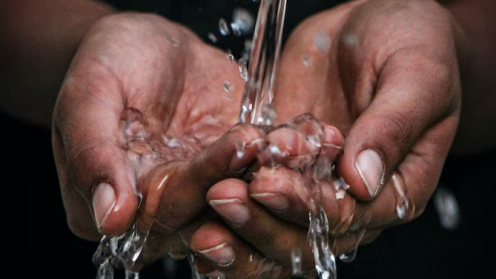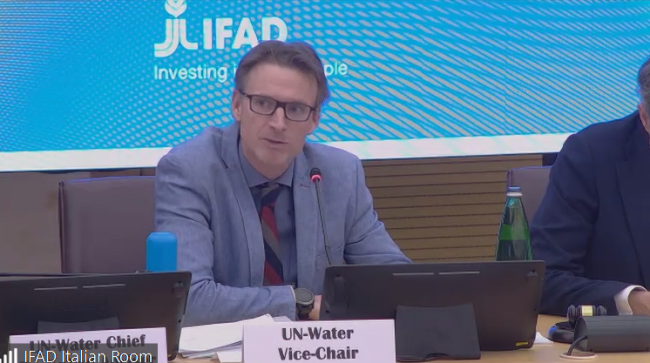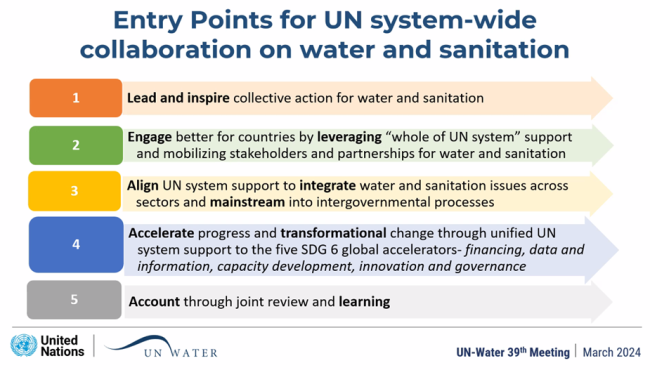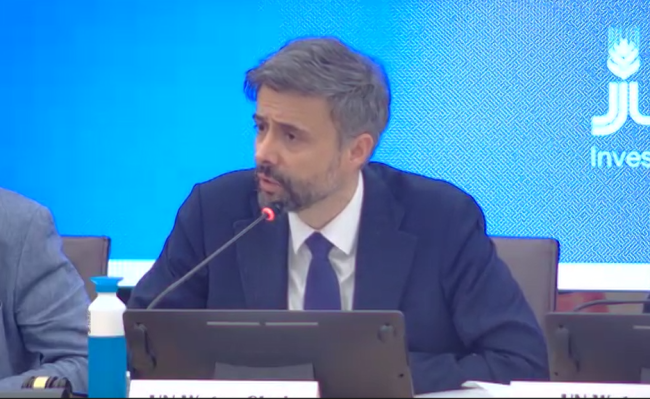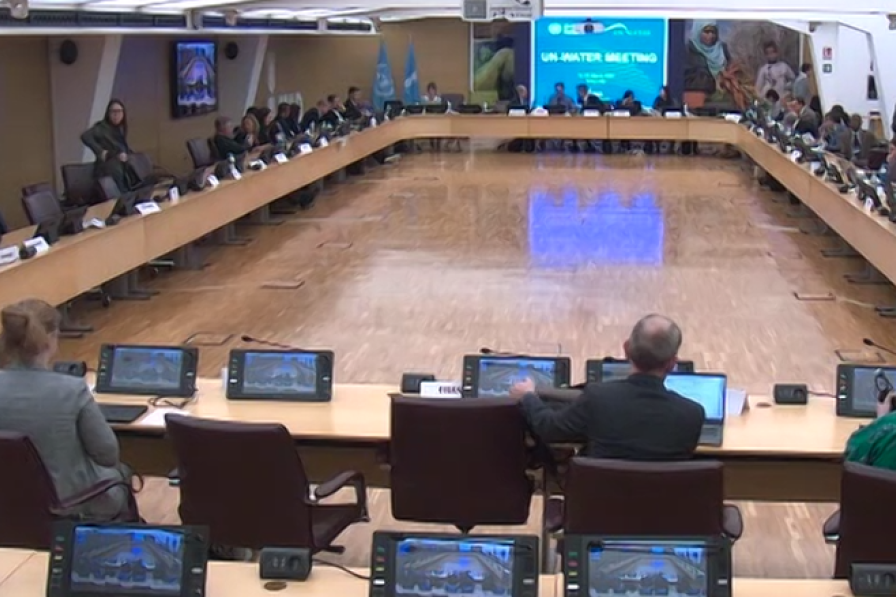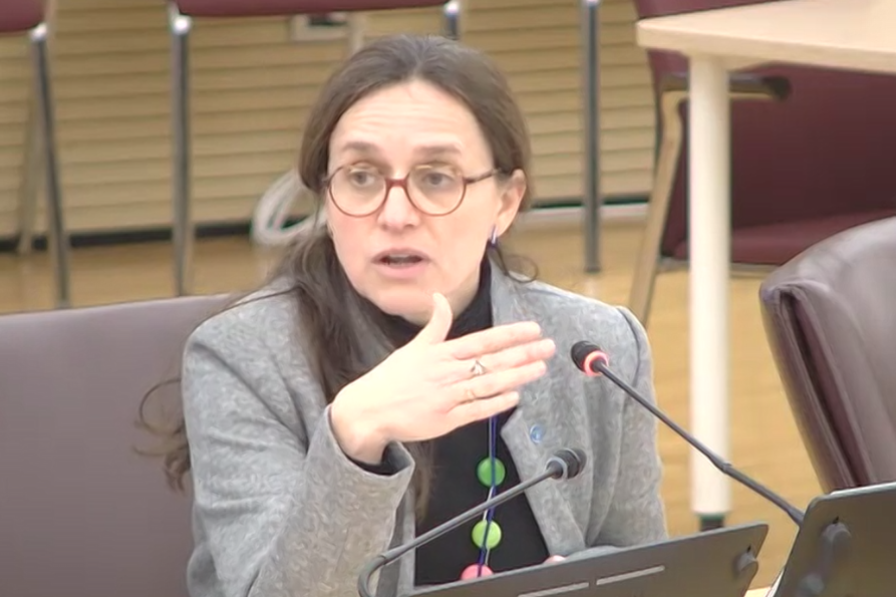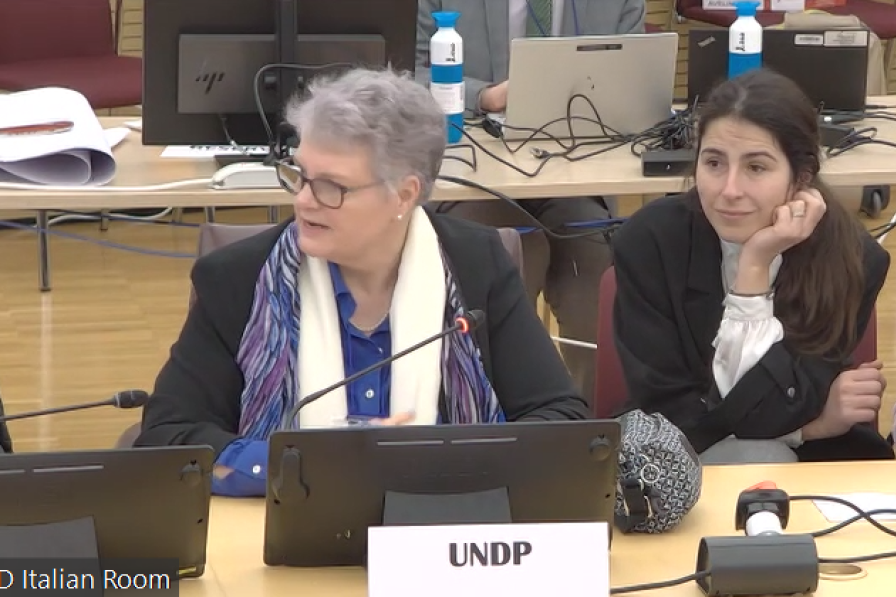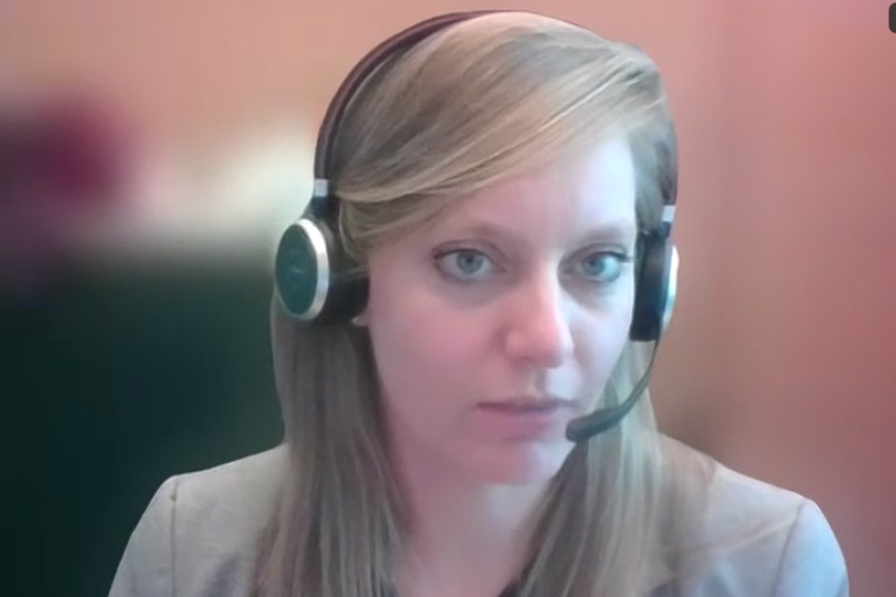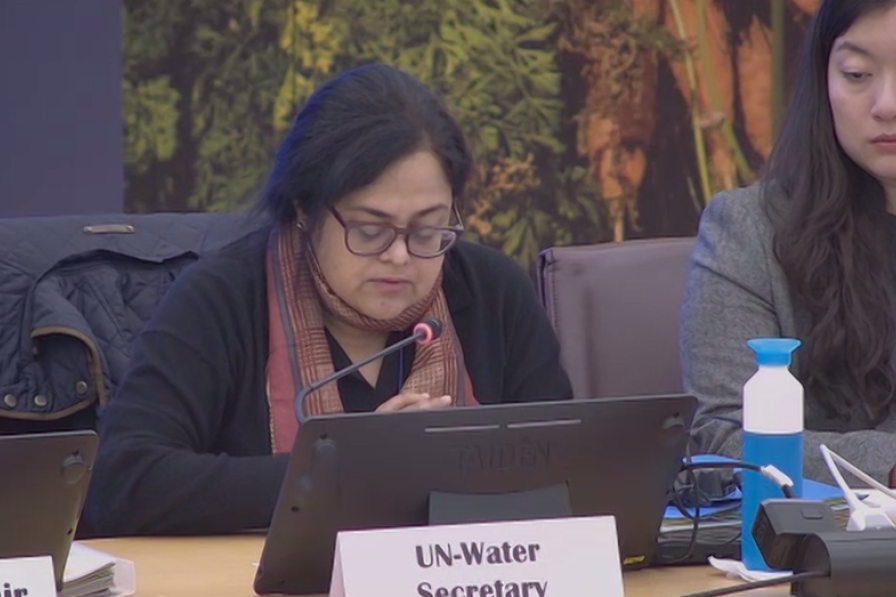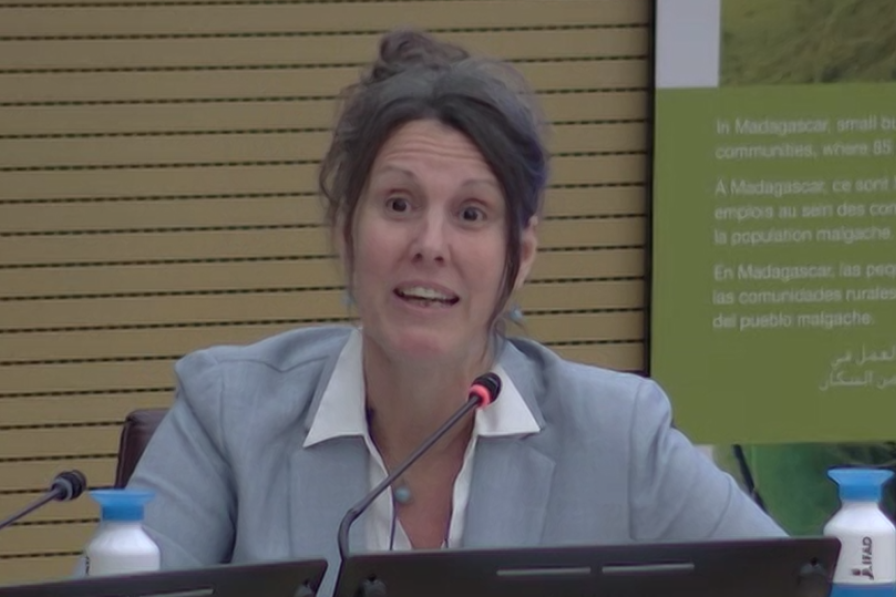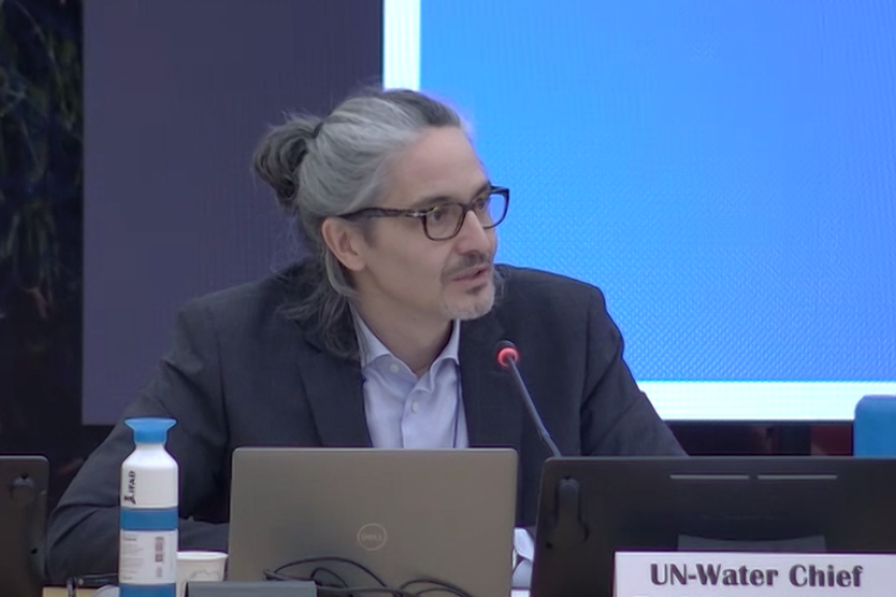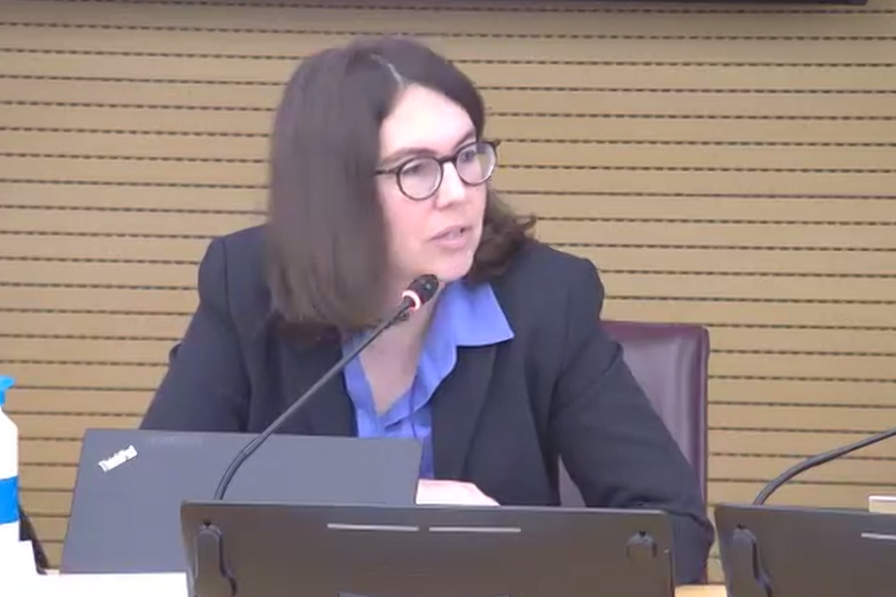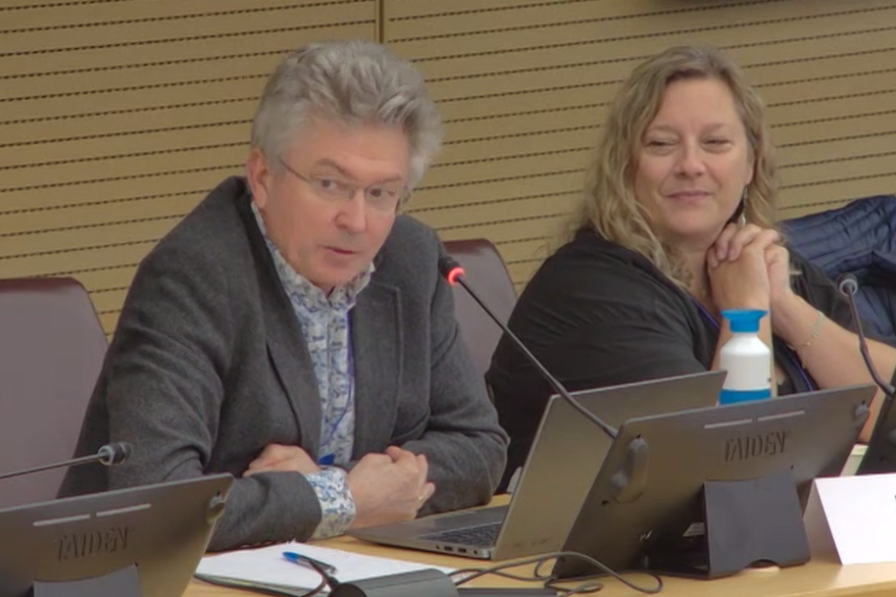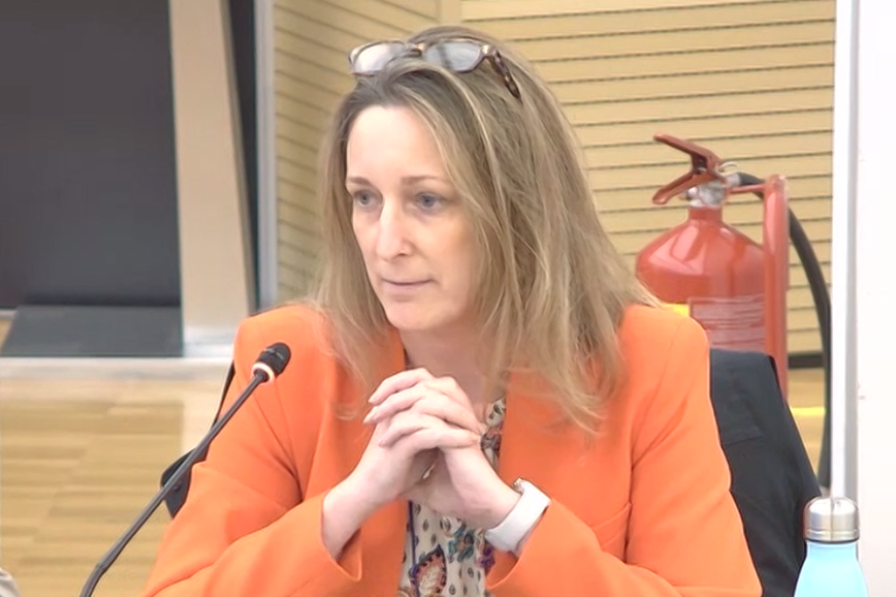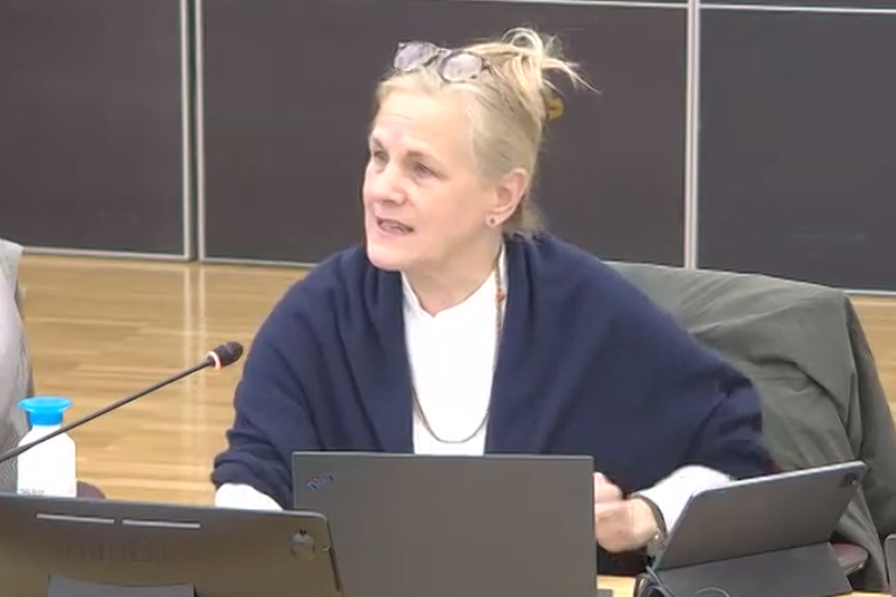Bruce Gordon, UN-Water Vice-Chair, opened the second day of the 39th UN-Water Meeting and celebrated that the UN system-wide strategy had been adopted the day before by the UN High-Level Committee on Programmes. UN-Water Members and Partners were informed the development of the collaborative implementation plan for the strategy had been delegated to UN-Water, and they proceeded to engage in world café style discussions to inform the development of this plan.
Kelly Ann Naylor, Consultant, recalled the strategy assesses how the UN system is working together on water and sanitation and seeks to operationalize interagency cooperation to ensure the UN system can deliver more strategic, effective support to countries. Naylor noted the implementation plan will evolve to adapt to the needs and requests from the UN system, and invited participants to discuss options for the plan based on the strategy’s five “entry points.”
On leading and inspiring collective action for water and sanitation, participants highlighted the importance of communications, leadership at the country level, and leadership in international fora. They noted many are confused and believe UN-Water is a UN agency, rather than a coordination mechanism, and suggested addressing this misunderstanding through messaging inside the UN as well as externally. They suggested Resident Coordinators within UN Member countries should have water focal points within their offices. They also suggested treating the 2026 and 2028 UN Water Conferences as though they are Conferences of the Parties (COPs), and said the secretariats and parties of multilateral environmental agreements should be invited.
On engaging better for countries by leveraging “whole of the UN system” support and mobilizing stakeholders and partnerships for water and sanitation, participants said Resident Coordinators should understand the new strategy and what it offers for the countries they work in. They discussed the need to create demand for water services work and engaging with different ministries.
On aligning UN system support for integration across sectors and mainstreaming into intergovernmental processes, participants called for greater communication among UN-Water task forces, members and partners. They suggested hosting a UN-Water pavilion at various COPs and called for exploring ways that water is discussed in other international decision making processes.
On accelerate progress and transformational change by unifying UN system support to five SDG 6 accelerators, participants identified options related to each accelerator. On governance, they called for thinking beyond national governments to incorporate transboundary considerations. For financing, they suggested looking at how existing financing is used in addition to calling for additional funding. On data, they noted the need to understand data needs and to not simply push for open data. On innovation, they noted the need for a platform through which innovations could be shared. And on capacity building, they noted the need to address capacity gaps and create a shared narrative within UN agencies on the strategy itself and how it should be implemented.
On accounting through joint review and learning, participants discussed the need to link this process to the UN’s Quadrennial Comprehensive Policy Review (QCPR), which assesses the effectiveness, efficiency, coherence, and impact of UN operational activities for development. Speakers also highlighted the role for engaging at the regional level.
During the discussion, several speakers highlighted the need for a deeper understanding of which activities UN-Water would lead and which activities UN agencies would lead. Speakers also suggested learning from other UN system-wide strategies.
Participants agreed the next UN-Water meeting would consider these questions and other issues related to the development of the collaborative implementation plan. Given the timeline for the development of the plan, the meeting will take place in the final quarter of 2024, back-to-back with the second annual session of the UN System Chief Executives Board for Coordination meeting in New York, US. Following agreement on this schedule, UN-Water Chair Alvaro Lario closed the open session of the 39th UN-Water Meeting at 3:44 pm CET.
To receive free coverage of global environmental events delivered to your inbox, subscribe to the ENB Update newsletter.
